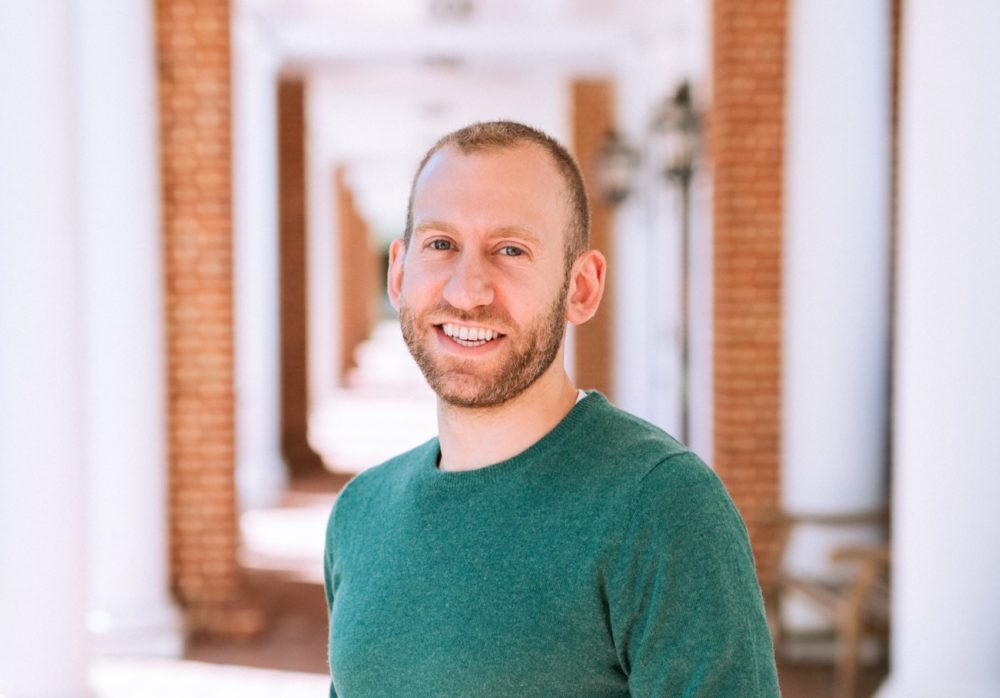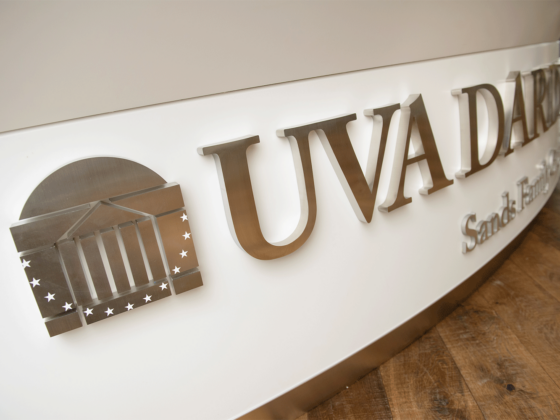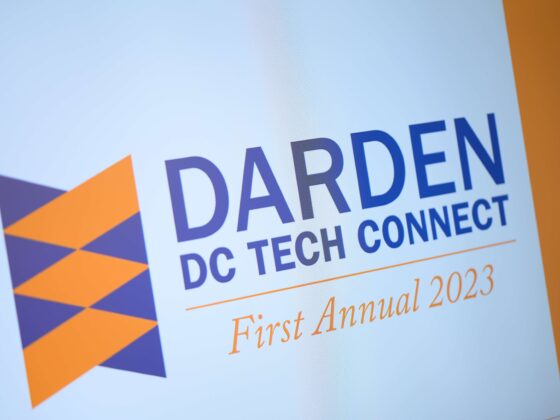Andrew Finkelstein (MBA ’22) came to Darden knowing that he wanted to launch a venture capital career — specifically in the agricultural and food technology sectors. With the help of Darden’s Batten Venture Internship Program, Andrew has accomplished exactly that.
“Venture capital is a long shot as it is,” Andrew said. Helping to fuel Finkelstein to meet the challenge was his passion for nutrition, sustainability and animal welfare. Andrew, his wife and their two dogs run a zero-waste kitchen and have experimented with a variety of environmentally conscious diets.
“A steak or a banana or a walnut isn’t as simple as the end product on your plate. They flow through the food value chain from farm to processing to market to consumer, and often to waste streams thereafter. Through a lot of personal trial and error, and a healthy amount of research, I realized that what I’m eating impacts the planet almost as much as it does my own health,” said Andrew. “By going into venture capital and reframing these sorts of problems as opportunities, I can move the needle on both environmental preservation and feeding the global population in a manner better than today. It was a reckoning moment for me when that clicked.”
So Andrew narrowed his search to 5 or 6 funds that he would seriously pursue and tapped into his background in early-stage startups, business development and sales.
“You don’t get what you don’t ask for,” Andrew advised. “99 percent of the time it’s on you to start the conversation. If not, you’re running in place.”
So that was Andrew’s next step in his First Year search for a summer internship. Through LinkedIn, Finkelstein started contacting and connecting with individuals in the venture capital space. Andrew’s networking soon fortuitously collided with the case method and his work in the Darden classroom.
“In one of my classes at the time, we were doing a case on e-sports,” Andrew recalled. “And one of the earlier conversations I had with a FoodTech venture capitalist was about e-sports nutrition. So I jumped at what I saw was an opportunity to build them a slide deck on the industry. Entirely unsolicited, mind you! At that point, I think they had an ‘Aha!’ moment where they realized they could put me to work.”
That “Aha!” moment led to a series of projects on behalf of venture capitalists in the very same AgTech and FoodTech sectors that Andrew wanted to pursue.
“They had a lot of follow-up questions to my analysis, and I was ready to work. So whenever I wasn’t in class, I was doing FoodTech research,” said Andrew. “Even though I didn’t realize it at the time, I was supporting efforts in market sizing, building landscape analyses and assessing business risks. I was essentially conducting most aspects of due diligence.”
Finkelstein’s entrepreneurial mindset led him to AgFunder, a global venture capital firm that invests in founders seeking to transform agricultural and food systems. Throughout the fall of his First Year, Andrew began networking with prospective AgFunder portfolio companies and investors, and had discussions about deal sourcing and fundraising. Powered by the Batten Venture Internship Program, Andrew had the opportunity to turn those conversations into a formal summer MBA internship. He plans to return to AgFunder in a full-time role starting in June.
“In venture capital, you have to create and cultivate your own ecosystem. You end up building your own network of venture capitalists, accelerators, startups, founders, subject matter experts and LPs,” Andrew said. “Everything is urgent, everything is time-intensive, and on some days it can grind you into a powder — especially if it feels like you’re having a lot of one-way conversations! But I do believe that passion breeds success. And if you enjoy what you’re doing, you’ll pour in as much time and effort as it takes.”
He also encouraged fellow Darden students considering venture capital as a career path to be deliberate and thoughtful in their search.
“Do you want to be in generalist tech, or do you have a specific interest you want to pursue?” Andrew asked. “My belief is specificity will give you an edge over a pool of candidates. Instead of conveying, ‘I’m well-suited for VC, therefore you should interview me,’ consider something more unique to you as an individual, like ‘I’m really passionate about robotics, the future of healthcare, or the metaverse.’ That’s a better way to start the conversation, and it’ll differentiate you as not just skilled, but motivated.”





